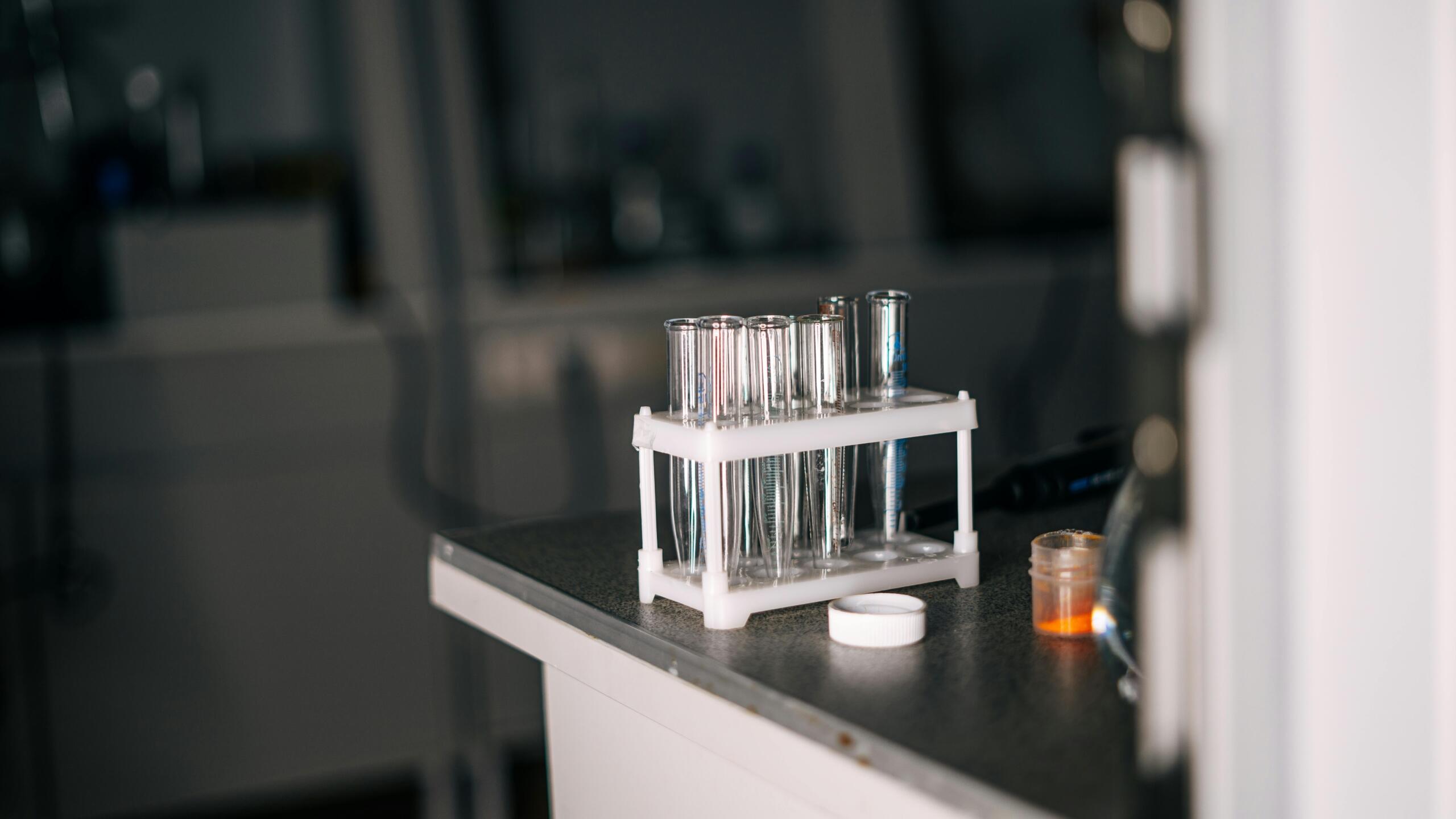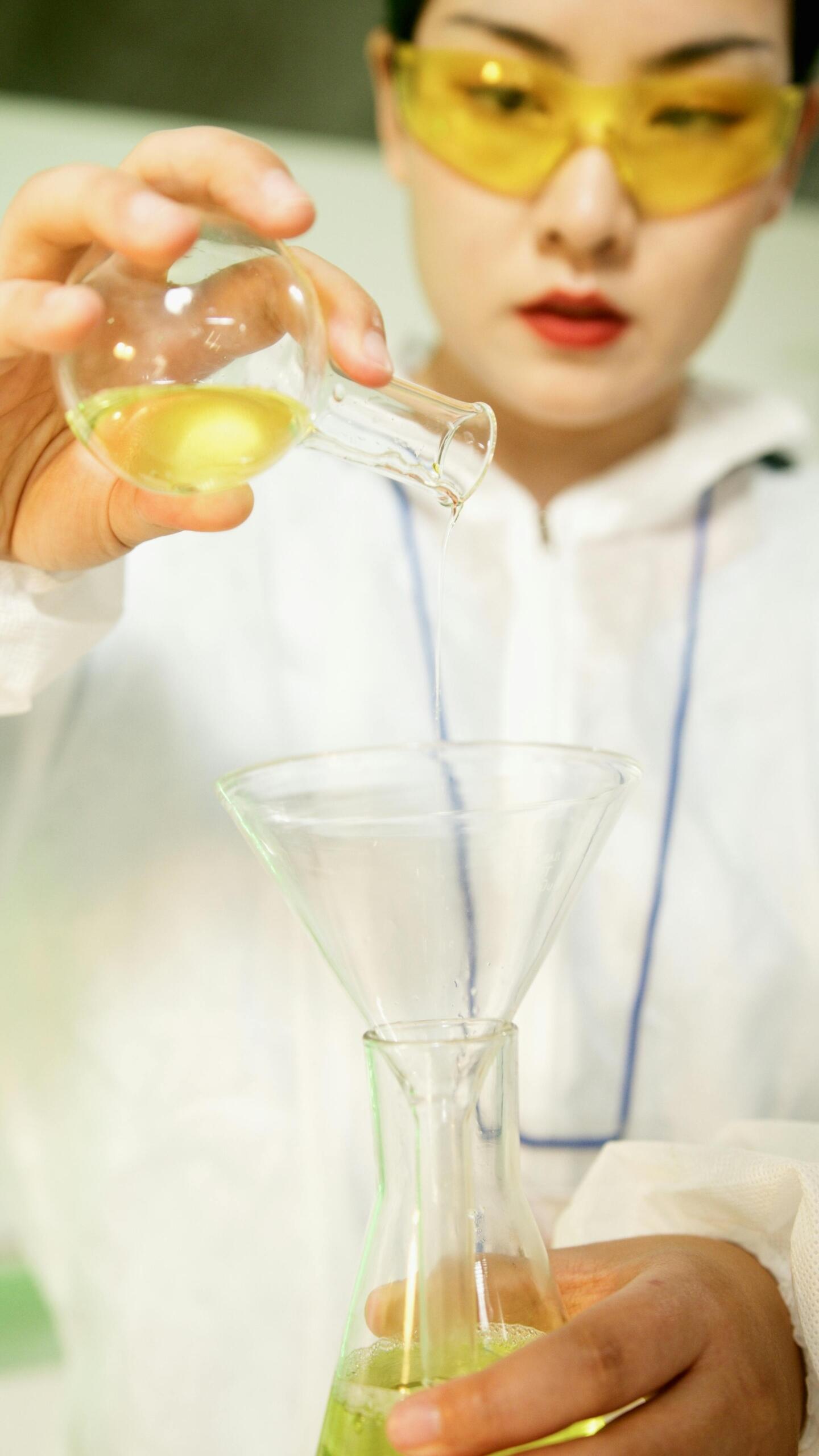Physical chemistry explores the principles governing matter’s behavior, combining physics and chemistry to study its properties and interactions. Graduates in this field are highly sought after for their ability to apply chemical principles to solve challenges and drive innovation across various industries. Career opportunities include roles in:
- Academia
- Government Agencies
- Research and Development
- Pharamaceuticals
- Environmental Science
- Forensic Chemistry
- Materials Science
- Computational Chemistry

Where Are Job Opportunities Available for Physical Chemists?
Physical chemistry studies the nature and physical properties of chemical substances and matter in general. A degree in physical chemistry gives many job opportunities in sectors like pharmaceuticals, biotechnology, materials science, and energy. Let's discuss some prominent career options for students with a degree in physical chemistry:

Research and Development
Physical chemists can work in research and development roles in various industries, such as pharmaceuticals, energy, and materials science. Their responsibilities include developing or improving new products, testing and analyzing materials, and conducting experiments to explore matter's physical and chemical properties.
There are plenty of jobs that use physical chemistry in research. As a physical chemistry researcher, you will utilize your knowledge to look into the basic principles that control matter's behavior at the molecular and atomic levels. It includes studying chemical reactions, the qualities of value, and the physical rules that govern them. A physical chemistry researcher would explore chemical systems and create theories to clarify their behavior using a variety of approaches, including spectroscopy, computational modeling, and experimental observations.
A Research and Development Chemist studies chemical compounds and uses research to support the development of products, including manufactured products, or processes, including industrial processes.
To work as a physical chemistry researcher, you should have a strong chemistry, physics, and mathematics background. It usually entails completing a bachelor's degree in chemistry or a closely connected discipline before continuing your studies with a Ph.D. in physical chemistry or a related field. To effectively explain your research findings to coworkers and other stakeholders, you must have outstanding analytical and problem-solving skills, strong communication abilities, and attention to detail.
Quality Control
Physical chemists can also work in manufacturing companies' quality control and assurance roles. They ensure that products meet industry standards by analyzing their physical and chemical properties, performing tests and experiments, and providing recommendations for improvement.
According to Talent.com, the average salary for a physical chemist working in quality control roles is $58,691 per year.
Academia
You'd be surprised at just how many jobs are out there for physical chemists in academia. Despite the common misconception that the role degree is so specific that it narrows down the number of jobs that graduates are suited to, being a physical chemist presents countless career prospects, even in academia alone.

Physical chemists can work as professors or researchers in colleges and universities.
Their primary duties involve conducting research, teaching courses, and mentoring students.
They can also function in administrative roles, such as department chairs or chancellors.
While they must hold a bachelor's or master's degree in chemistry, some institutions may require them to acquire a teaching certification or license.
Physical chemistry instructors are in high demand, particularly at the college and university levels. One should research the educational and licensing requirements in their state or country, employment opportunities in colleges, universities, and high schools, and online tutoring services like Superprof before deciding to pursue a career as a physical chemistry instructor.
Government Agencies
Physical chemists can work in various government agencies, such as the Environmental Protection Agency and the National Institute of Standards and Technology. In this role, they work on environmental analysis, chemical safety, and standardization projects.
Consulting
Physical chemists can work as consultants for private companies or government agencies and provide expert advice and recommendations on various topics, such as material design and development, environmental analysis, and chemical safety.
The following table shows industry sectors that hire physical chemists.
| Industry Sector | Examples of companies |
|---|---|
| Chemical Manufacturing | Dow Chemical, BASF, DuPont |
| Pharmaceutical | Pfizer, Merck, GlaxoSmithKline |
| Biotechnology | Amgen, Genentech, Biogen |
| Energy | Chevron, ExxonMobil, Shell |
| Materials Science | Corning, 3M, GE |
| Nanotechnology | Nanosys, Nano solar, Zyvex Labs |
| Government Agencies | National Aeronautics and Space Administration (NASA), National Institute of Standards and Technology (NIST), Environmental Protection Agency (EPA) |
Physical chemistry is a complex field. Students needing extra help with this subject or a particular aspect can hire private tutors from platforms like Superprof. Superprof offers credentialed experts who have met the education and certification requirements to teach physical chemistry in a school or university.
What Are Some Growing Physical Chemistry Fields?
Several fields within physical chemistry are experiencing rapid growth due to advancements in technology and increasing global challenges. Additionally, environmental and atmospheric chemistry are gaining importance, with a focus on climate change, pollution control, and sustainable energy solutions.
In the US, the field of chemists and materials scientists is projected to see a 6% growth from 2023 to 2033, faster than the average for all occupations, with about 7,800 openings expected each year, according to the Bureau of Labor Statistics (BLS).
With the rise of artificial intelligence and machine learning, computational chemistry is also transforming how scientists analyze chemical processes and design new compounds. The following are some of the fastest-growing fields in physical chemistry with rewarding career opportunities:
Analytical Chemistry
Scientists with a physical and analytical chemistry degree can explore additional rewarding career prospects. They can work in various fields, such as environmental organizations, forensic labs, and quality control labs. The potential roles for students of analytical chemistry are described below:
Forensic Labs
In forensic laboratories, physical chemists majoring in analytical chemistry test samples from crime scenes to determine whether drugs, poisons, and other substances are present.
Also, they can create brand-new approaches and procedures for forensic investigation, such as mass spectrometry and chromatography, to find and examine minute quantities of compounds in complicated mixtures.
In forensic laboratories, forensic chemists and toxicologists analyze crime scene samples for drugs, poisons, and chemicals.
They also develop forensic techniques like mass spectrometry and chromatography to detect trace substances.

So, not only will you present yourself with a lucrative avenue of employment in forensic labs, but it will also lead to an exciting career where no two days are the same. You'll be able to apply your skills by working collaboratively on exciting projects that truly interest you!
Environmental Agencies
They perform testing and monitoring of air, water, and soil quality for environmental organizations like the EPA. They also create and employ analytical procedures for identifying and measuring ecological pollutants and other compounds using their knowledge of physical chemistry. In environmental agencies, environmental chemists and air or water quality analysts monitor pollution and ensure regulatory compliance. Their work helps identify contaminants and develop solutions for pollution control.
Quality Control Labs
Physical chemists with degrees in analytical chemistry examine and test products to ensure they fit quality standards using their understanding of biological chemistry. To inspect and try items for purity, potency, and other quality characteristics, they develop new techniques and technologies for quality control, such as spectroscopy, chromatography, and mass spectrometry.
In quality control labs, quality control chemists and pharmaceutical analysts test product purity, potency, and safety. They use techniques like spectroscopy and chromatography to maintain quality standards in pharmaceuticals, food, and consumer goods.
Materials Science
Materials science is a rapidly growing field for chemists with a degree in physical chemistry. They can work in various industries, including industrial and manufacturing companies, research and development labs, and academic institutions. The following are the opportunities for physical chemists in the material science industry:
Materials science combines principles from engineering, physics, chemistry, and other disciplines to address real-world problems. Materials scientists aim to understand and manipulate the properties of materials, such as strength, electrical conductivity, and resistance to heat or corrosion.
Industrial and Manufacturing Companies
Physical chemists can create new materials and improve existing ones and production procedures by applying their knowledge of material chemistry. They can examine the characteristics of materials and improve production methods using technologies, including microscopy, spectroscopy, and diffraction. In industrial and manufacturing companies, materials scientists and polymer chemists develop and enhance materials for stronger, more efficient products in aerospace, automotive, and electronics.
Research and Development Labs
Physical chemists can research the behavior of materials at the molecular level, develop new materials and technologies, improve current materials, and optimize production processes using their knowledge of material science. They are responsible for boosting productivity and quality by utilizing microscopy, spectroscopy, and diffraction technologies.
In R&D labs, researchers study molecular properties to create advanced materials like biodegradable plastics and high-performance composites. Their innovations improve product performance across industries.
Academic Institutions
Physical chemists interact with other researchers to create and develop new technologies and materials. They also work as instructors and assistants at educational institutes offering degrees in physical chemistry to teach graduate students and postdoctoral researchers. Physical chemistry tutors can display their knowledge and aid students in achieving their academic aims.

At academic institutions, chemistry professors and materials researchers educate students and conduct studies on material advancements. They often collaborate with industries to develop new technologies.
Computational Chemistry
There are also plenty of physical chemistry job opportunities in computational chemistry, a growing field for physical chemists. They can work in various industries, including pharmaceuticals and biotech companies, academic institutions, and government agencies. The following are the opportunities for physical chemists in the computational chemistry field:
Pharmaceuticals and Biotech Companies
Physical chemists can use computational chemistry technologies to create novel medications and improve existing ones, explore the molecular interactions between pharmaceuticals and their targets, and create new computational tools and algorithms. They can work with scientists, biologists, and pharmacologists to develop new drugs for diverse ailments.
In pharmaceuticals and biotech companies, computational chemists and molecular modelers use simulations and AI to design new drugs and analyze molecular interactions, accelerating drug development.
Academic Institutions
In academic circles, physical chemists conduct research, teach computational chemistry, create new techniques and algorithms, manage graduate students and postdoctoral researchers, and interact with other researchers. In academic institutions, professors and research scientists develop new computational methods while mentoring students and collaborating on interdisciplinary projects.
Government Agencies
To research materials, catalysts, and biological systems, physical chemists create novel computational techniques and algorithms using their expertise in computational chemistry. They may also participate in initiatives about defense and national security. In government agencies, computational chemists contribute to national security, public health, and environmental research by modeling chemical interactions for defense, toxin detection, and food safety.
If you're searching for tutoring for chemistry near me, Superprof is a platform that connects you with tutors skilled at teaching you the subject from scratch. A physical chemistry tutor from Superprof will provide one-on-one tutoring services to help you understand key concepts and principles in physical chemistry, improve your problem-solving skills, and prepare for exams.
Learn Physical Chemistry with Superprof
A bachelor's and master's degree in physical chemistry offers a broad range of lucrative and progressive career opportunities in areas like research and development, analytical chemistry, materials science, computational chemistry, and academia. Keeping up with new technologies and adjusting to the shifting needs of the chemistry market are a few challenges that students must learn to adapt to in order to emerge as successful professionals.
Superprof provides a platform for students seeking to learn physical chemistry by providing access to thousands of highly qualified and experienced tutors. Our private tutors offer tailored support and direction to help students build fulfilling careers and significantly contribute to society. Master the complex concepts of this interesting field, including the differences between physical and chemical chemistry, with our qualified tutors at affordable per-hour rates. Sign up today to begin your physical chemistry lessons!
Summarize with AI:
















